Does your university as a body participate in international collaboration on gathering or measuring data for the SDGs?
UzFarmBarometer
Central Asia stands at the brink of transformative change in agriculture and rural development, shaped by both persistent challenges and emerging opportunities. The region faces significant pressures from land degradation, water scarcity, and climate variability, all of which pose risks to long-term agricultural productivity and food security. At the same time, ongoing investments in modern technologies, institutional reforms, and market-oriented approaches are transforming agricultural sector, creating new pathways for sustainability, resilience and economic growth. Understanding how these dynamics interact and identifying strategies for sustainable agricultural transformation are crucial to ensuring long-term agricultural growth and rural prosperity.
The project UzFarmBarometer is a research initiative designed to explore the motivations and constraints behind farmers' decisions to adopt sustainable agricultural practices (SAP). Despite the high expectations associated with sustainable agricultural practices, in many areas around the world, including Uzbekistan, their adoption rate of is still low. Behavioral economists have identified several factors hampering the general tendency of farmers to try out new practices. Considering them can enrich research outcomes and contribute to more realistic and better-understood farmers’ decision-making.
Green Growth Indicators for Uzbekistan
The OECD defines green growth as “fostering economic growth and development while ensuring that natural assets continue to provide the resources and environmental services on which our well-being relies”. It is the point where twin challenges meet – the need to expand economic opportunities, while addressing environmental pressures. It is also about exploiting the opportunities to realise the two together (OECD, 2017).
EQ-5D Valuation of health state of Uzbekistan Population through EQ-5D-5L tool: EuroQoL
This research project is the first health state value set measure of Uzbekistan’s population. The goal of the project is to develop a value set for EQ-5D-5L health states based on the preferences of the Uzbekistan general population. The findings will be first step to perform economic evaluation of the health state and to make evidence-based policy decisions in the health sector. The results of the study are useful for researchers, policy makers, and academicians in the Ministry of Health. The research involves a population-based survey that is interviewer-administered, face-to-face, and cross-sectional. It will be conducted using a computer assisted EuroQol PowerPoint Based Valuation Technology (EQ-PVT) software. A representative sample of 1000 respondents will be recruited from the Uzbekistan general population to participate in the survey. A non-probability, two-stage quota sampling based on gender and age will be employed to recruit respondents from five regions: Tashkent, Bukhara, Khorezm, Kashkadarya, and Fergana.
Uzbekistan Food Price Monitoring and Analysis (FPMA) Tool
Users of Uzbekistan Food Price Monitoring and Analysis (FPMA) Tool can now compare food prices between the regions of Uzbekistan.
Dr Etenesh B. Asfaw (CPRO) and Akhtem Useinov (Graduate School – Research) have participated in the FAO Working Group on Regional Trade, Market and Price Situation. They presented Uzbekistan Food Price Monitoring and Analysis (FPMA) Tool and summary analysis of the food price and trade situation, with implications to food security in Uzbekistan.

